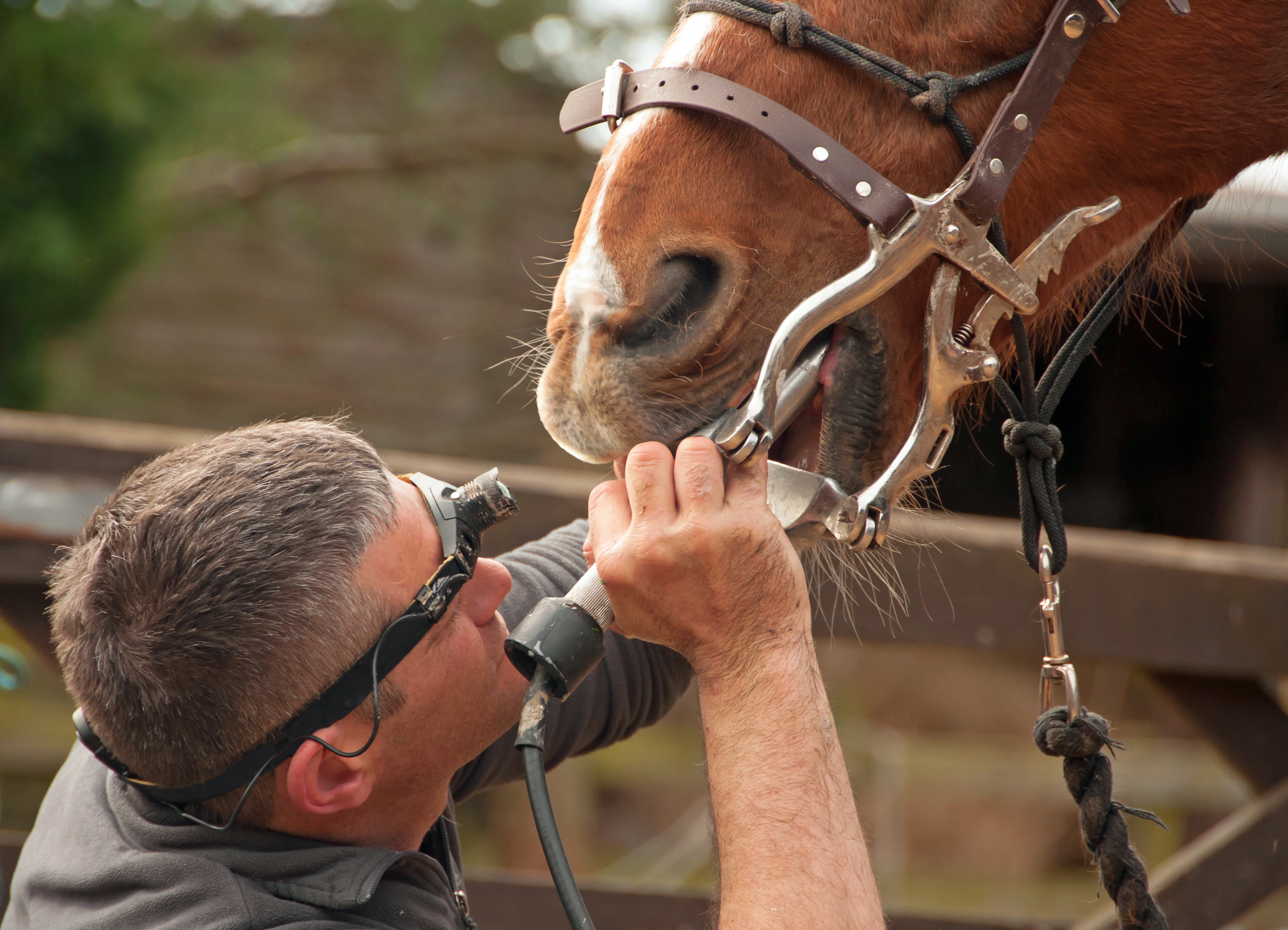What is Cribbing?
Cribbing or crib biting is a behavior in which the horse grabs onto a fixed object with the front teeth and pulls back while making a grunting noise. Windsucking is similar but the horse achieves the same position without grabbing a fixed object. Cribbing and windsucking have been reported to have detrimental effects on the horse's health such as causing dental abnormalities, stomach ulcers, weight loss, and even colic. In the past, it was believed that these horses sucked in air while cribbing and this ingestion of air led to colic. However, this was later shown to be incorrect because a small amount of air is actually ingested when these horses crib and suck wind.
HorseOralExam

It's important to talk with your veterinarian if you see any new concerning behaviors in your horse.
Research
It is now believed that horses that crib have altered brain and intestinal physiology that may cause them to colic. A recent survey in the U.K. indicated that the incidence of colic in horses that cribbed was high compared to the incidence of those that didn't. One study revealed that horses that cribbed were twice as likely to have a history of colic than those that did not crib. The survey also indicated that horses that experienced colic were more likely to be fed less hay and more grain and be stalled more than horses out at pasture. Also, it seemed at least in the U.K., that more horses experienced colic in the spring and fall than other times of the year. Other research also indicates that dietary management can play a role in cribbing. Horses fed sweet feed were more likely to crib than those fed hay alone as were horses fed infrequently.
What To Look Out For
If you have a horse that cribs, realize that this horse has an increased risk of colic. If you are considering purchasing a horse, check out the front teeth. If they are worn down as they are in horses that crib, realize that this horse may have an increased incidence of colic.